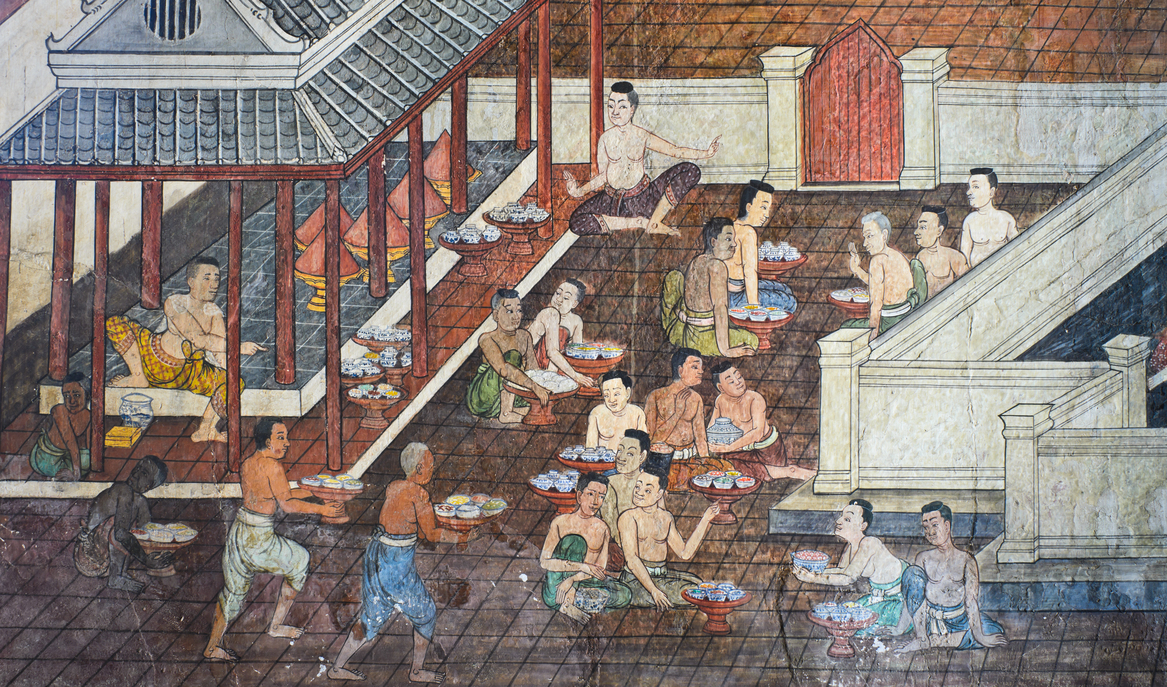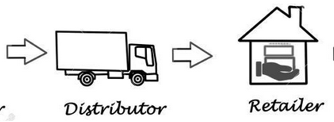The mysterious term “procurator” appearing in many articles on China’s legal system means essentially the same thing as an Attorney General in the United States or the United Kingdom. The translation of this term is extremely outdated, yet translators have resisted using a correct, understandable term for decades. What is a procurator, and why are translators using a translation that has been outdated for hundreds of years for the term?
A bit of history on attorneys general
Most English speakers never heard the word “procurator” before, since it evolved from an ancient English loanword from Latin (procurator) to proctor. Most UK and US institutions now use the word “proctor” for job roles, with a handful of historical exceptions such as the HM Procurator General, Treasury Solicitor in England; and the Procurator Fiscal in Scotland. So, where exactly did the word come from?
Roman administrators two thousand years ago held the title “procurator.” Similar job roles also persisted in post-Roman France and England. Historians tell us that 550 years ago in England, the attorney general was known as the King’s Procurator, but this terminology has progressively been replaced by Lord Advocate and Attorney General. British officials holding the title “procurator” now generally tell reporters they are an ‘attorney’ or ‘prosecutor’ depending on their role.

The Chinese word refers to an attorney general role, but this has caused confusion since the specialized roles of the attorney general have been carved out into other agencies in most jurisdictions. However, the Supreme Court and Congress affirm that the expression “attorney general” includes criminal prosecutors even if they use a different job title such as district attorney. China has only just begun dividing these roles up, recently establishing an office misleadingly translated as the “Supervisory Commission,” which is actually an Inspector General. The attorney general in China still has a distinctively broad set of duties, so it’s necessary to look at how the office describes its work according to the Deputy Attorney General:
“Attorneys general in China are dedicated to legal oversight pursuant to the organic statute establishing the People’s Attorneys General and applicable procedural law. Specifically, they investigate crimes committed by government officials; grant powers of arrest and prosecution; oversee criminal investigations, trials, and the execution of rulings; and oversee civil trials and administrative litigation.”
The Attorney General says that the first and foremost function of their office is investigations, which is a theme emphasized in basically all characterizations of the office in China. The office previously conducted government integrity investigations of the executive branch of government, which was recently transferred to a new Inspector General’s office, similar to most other jurisdictions.
A surprisingly unique role for an attorney’s general office is that the Chinese agency is responsible for judicial oversight in civil matters. Judicial oversight legislative expert Biao Qi had this to say about the role:
“The civil court functions of the People’s Attorneys General are classified into the following four categories:
First, overseeing court rulings and mediation agreements by challenging such rulings and providing them with recommendations for retrials. […]
Second, overseeing court misconduct during trials by providing them with recommendations for retrials. […]
Third, overseeing execution of court orders by the courts and providing them with recommendations for retrials. […]
Fourth, oversight against frivolous lawsuits.”
This seems like an exceptional intervention of the executive branch of government into the judiciary. However, challenges against rulings are very limited and circumscribed to an appeals process by the official guidance:
“[…] Attorneys General may only oversee rulings issued by People’s Courts that have already taken effect and may challenge any ruling where errors are found. Civil ruling challenges may only be made against effective rulings. Attorneys General may not exercise their right to challenge any rulings yet to take effect. Therefore, civil ruling challenges are not entirely equal to criminal ruling challenges and may only be initiated pursuant to the ruling and oversight procedures specified in the Civil Procedure Law.”
In addition to the sharp limitations on when a challenge to a judicial opinion may be filed, official guidelines provide that the attorneys general can only challenge a civil judgment in an extremely limited number of circumstances:
“1. Challenges to civil and administrative case rulings shall be filed by the Attorneys General entitled to challenge or petition a higher Attorney General to challenge rulings. Attorneys General shall file any case that falls under one of the following circumstances within thirty days of accepting the case:
(1) A lack of primary evidence for determining facts in the original ruling;
(2) An error in the governing law applied in the original ruling;
(3) The trial court has violated statutory procedures, resulting in an incorrect case ruling:
(4) There is evidence proving that a judge accepted bribes, engaged in misconduct, or violated the law during the trial.”
While considered to be a highly unique innovation of the Chinese system, other legal systems, such as the United States, have government attorneys achieve the same effect but by a slightly different means. Which office performs government oversight functions does not tell us what the lawyer’s job is like, instead, it tells us that the executive branch has control over the judicial branch.
The United States also has attorneys who inspect the judicial process: they are lawyers in the judiciary; the attorney general does not oversee the judiciary because that would defeat the purpose of setting up an independent judiciary.
Recent Developments
The role of attorneys general in China has been gradually evolving to become closer to their counterparts in European countries. When the agency was founded in China, the term “procurator” as a translation seemed like a good fit at the time, because most procurators lacked law education or training and were involved in government integrity inspections. However, a series of reforms over the past decade transformed the office’s role to be very close to the role of attorneys general in other jurisdictions. In addition to carving out the separate agency for government integrity inspections described above, attorneys general have an enhanced role representing the state in civil litigation.
The major reform appeared in 2012 with the rule of law reforms, which expanded their role to bring public interest lawsuits in civil courts against parties who damaged the public interest, without an easily identifiable victim, summarized by Judge Gao Minzhi:
“Section 55 of the revised Civil Procedure Law provides that the subject matter jurisdiction for civil prosecution for public interest is “practices that harm social and public interests, such as environmental pollution and violation upon consumer rights.” […]The core of public interest is its involvement of the general public and the interest of an undetermined number of people. Although an action is filed on behalf of many affected parties, the victims can still be determined and the purpose of the litigation is to protect individual interests. Therefore, class action still constitutes private interest litigation.”
Recent reform in China has placed great emphasis on making China a “rule of law” country, so it is natural that reforms giving China’s government attorneys the kind of powers and duties vested in American or British attorneys general would be deemed a necessary reform.
A highly criticized move has been transferring the powers of the inspector general division of China’s attorney general office to a new administrative agency. Controversy over inspector general roles is often highly controversial; in China, the criticism of transferring the role centered on removing anti-corruption work from the legal process, and indeed new anti-corruption leadership is composed of largely accountants and auditors. Inspectors general in most countries such as France are actually finance and administration trained; in America, they are usually lawyers. The appointment of inspectors general has caused repeated political fights in America as executives try to curtail third-party oversight of their activities.
Is “procurator” an outdated Chinese legal translation?
In the 19th century, Britain and America had already modernized, but visitors to Russia, Japan, and China saw what looked very much like ancient societies; in their eyes, it was comparable to ancient Roman times. Hence, they used many Roman titles to label what they saw in these societies. Following a long period of modernization, an observer can clearly see that the office performs fundamentally the same role as an attorney general. Moreover, it’s already well-established that “procurator” was merely just an ancient term used to describe attorneys, and the original derivates of the word “procurator” in France and Russia translate this position as “prosecutor” or “attorney general.”
So, why do the vast majority of Chinese translators still use the ancient English word for an attorney and not a modern one? Translators have been reluctant to use the word “attorney” to describe government lawyers because of confusion over mistranslated government integrity rules that make it seem like lawyers cannot be attorneys general. In reality, there is a government integrity rule prohibiting a procurator general from serving as legal counsel that states:
“Section 23 Procurators shall not concurrently serve as members of the Standing Committee of the National People’s Congress. They shall not be concurrently employed with any administrative, oversight, or executive agencies, businesses, for-profit organizations, or other government entities. Furthermore, they shall not take up outside employment as legal counsel, mediators, or notary publics.”
The above word for “legal counsel”, lüshi, is usually translated as “lawyer” or “attorney,” and that leads most translators to think it’s inappropriate to call someone working for the government a “lawyer.” To make it more confusing, Hong Kong’s Cantonese uses an identical word for ‘lawyer.’ Lüshi, however, is a much more specific word that is generally defined as “a professional that represents a party in litigation or resolution of a legal matter.” The statutory definition goes a step further in saying that lüshi are defined as engaged in law practice.
“Legal counsel” in this Law refers to practitioners legally licensed for private legal practice and represent clients or who are retained to provide legal services. Legal counsel shall protect the legal rights of their clients, ensure correct application of the law, and uphold social justice and fairness.”
In legal usage, the mainland Chinese word lüshi has also developed in such a way as to specifically exclude any government officials, according to Renmin University’s Professor Liming Wang:
The Chinese word is actually much closer in meaning to the Japanese word for attorney. In similar translator-driven confusion, Japan has consistently reported astonishingly small numbers of lawyers in the country, just 30,000, and this caused many newspapers to print surprising reports on what seemed like a Japanese miracle. More recently, scholars calling attention to reality point out that Japan has a per capita litigation rate that is higher than several economically advanced European countries. (see this Study)
Conclusion
Quite remarkably, Chinese translators to this day insist on using a forgotten medieval synonym, “procurator,” to translate the highly critical role of the government’s attorney general. Mistranslating this word has had major repercussions for international businesses in China, because reports referencing a “procurator” were overlooked by global management, which has resulted in numerous large fines against foreign businesses on legal compliance grounds. In my legal work, I found the Chinese translation problem “procurator” would turn up in business communications shortly before a legal disaster in China for an international company. The company was fundamentally unable to understand any of its legal compliance information (because it was mistranslated), and things got to the point where prosecutors were visiting the company and the English-speaking executives didn’t even know those “procurators” were responsible for charging legal violations.

